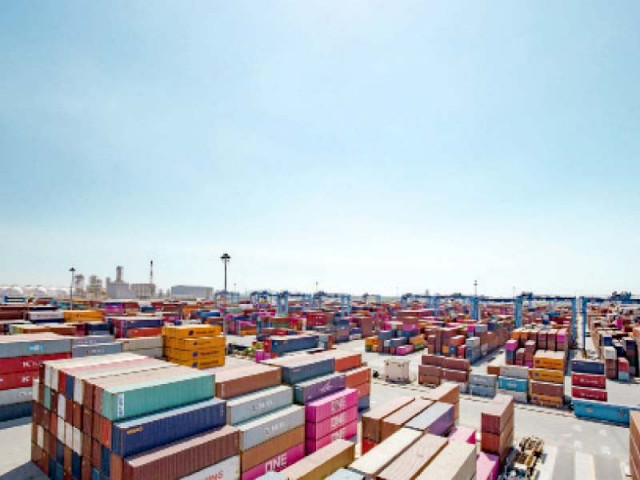Envoy proposes trilateral trade bloc
Says bloc with Hungary and Turkey will remove barriers to investment, help trade

Pakistan should create a trilateral trade bloc with Hungary and Turkey with a view to eliminating barriers to investment among these nations besides exploiting a huge trade potential, remarked Hungary Ambassador István Szabó.
He was speaking at a memorandum of understanding (MoU) signing ceremony between the All Pakistan Business Forum (APBF) and the Hungarian Export Promotion Agency on Tuesday.
The envoy appreciated efforts of the APBF aimed at promoting bilateral trade and joint ventures between business communities of Hungary and Pakistan. He agreed that serious and result-oriented efforts of the forum persuaded him to get Hungarian export agency engaged with the APBF to deepen relations between business communities of both the countries.
During the event, both sides agreed to boost bilateral trade and investment through a proactive approach and enhanced engagement.
The ambassador pointed out that the Hungarian embassy in Islamabad had been working on strengthening economic ties with Pakistan and the two countries had also signed the Economic Cooperation Agreement in 2017, which laid down the framework for further cooperation.
“Following the signing of the agreement, the organisation of the first session of the Joint Economic Commission in Hungary in September 2019 was another milestone,” he stressed.
The envoy said the Hungarian embassy, in cooperation with Pakistan’s Ministry of Commerce and the APBF, had planned to organise a bilateral business forum in Lahore, which was postponed due to the coronavirus outbreak.
He pointed out that Pakistan and Hungary signed the Convention for Avoidance of Double Taxation and Prevention of Fiscal Evasion with respect to taxes on income at the Federal Board of Revenue (FBR) headquarters on Tuesday.
In July 2012, the Organisation for Economic Cooperation and Development (OECD) approved changes to Article 27, which was related to the exchange of information, to include the provisions concerning cooperation between tax administrations of the two contracting states.
The present article embodies the rules under which information may be exchanged to the widest possible extent to include taxes other than the income tax. Therefore, to incorporate the latest standards of administrative assistance into the tax convention, Pakistan and Hungary decided to replace Article 27 with a new version through a protocol.
The new article provides that the competent authorities of the contracting states, exchanging information, will not be restricted by Article 1 and 2 of the convention and no state shall decline to provide information merely for the reason that such information is of no interest to it, or because the information is held by a bank, other financial institution or nominee or a person acting in an agency or fiduciary capacity.
According to the new version of the article, the contracting states shall exchange such information on request as is foreseeably relevant for carrying out provisions of the convention or to the administration or enforcement of domestic tax laws of the requesting state.
The ambassador termed the protocol another significant event in the improving economic relations, which depicted the commitment of the two countries to each other.
He added that the purpose of the protocol was to improve the bilateral exchange mechanism for information in accordance with the international standards.
The Hungarian embassy voiced hope that the next step would be the signing of an agreement for the promotion and reciprocal protection of investments.
The ambassador held the view that the treaty would have utmost importance for Pakistani subsidiary of the Hungarian MOL Group, which employs 400 Pakistanis, provides 14% of the country’s electricity and ranks among the 50 largest taxpayers in Pakistan.
As the Hungarian government is convinced that the best investment is education, it offers yearly 200 scholarships to Pakistani students, which shows the European country’s long-term commitment to Pakistan.
On the occasion, APBF President Syed Maaz Mahmood promised full cooperation and support for strengthening trade and economic ties between Pakistan and Hungary.
He expressed the desire to arrange business-to-business meetings, visits of business delegations for sector-specific match-making and interaction between stakeholders of the two countries.
Published in The Express Tribune, July 15th, 2020.
Like Business on Facebook, follow @TribuneBiz on Twitter to stay informed and join in the conversation.



















COMMENTS
Comments are moderated and generally will be posted if they are on-topic and not abusive.
For more information, please see our Comments FAQ